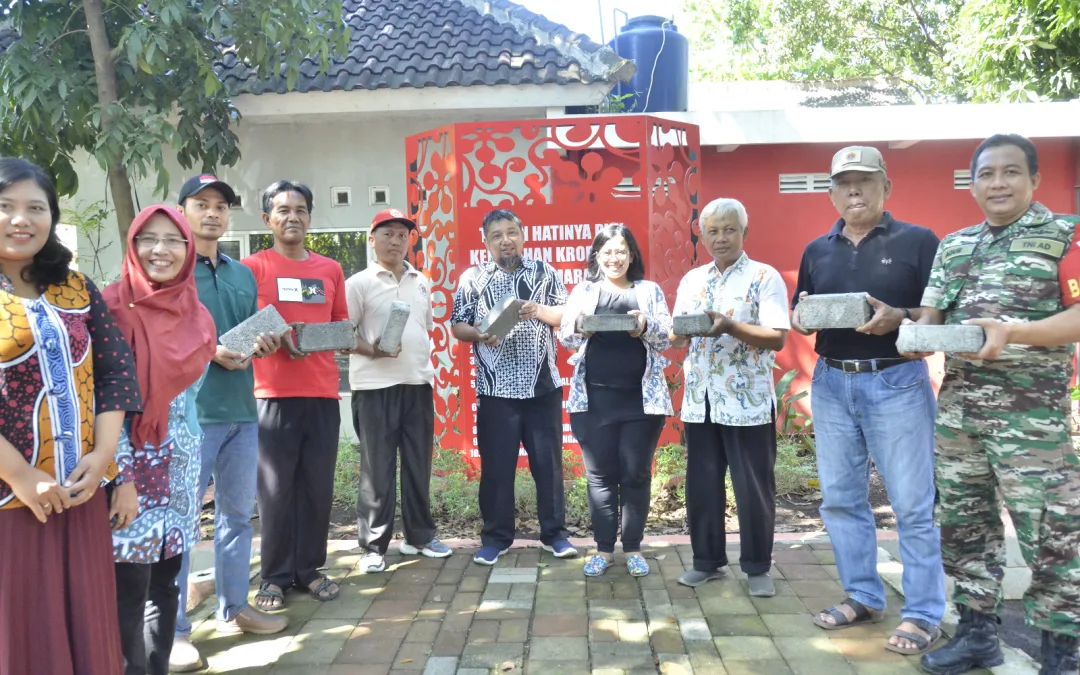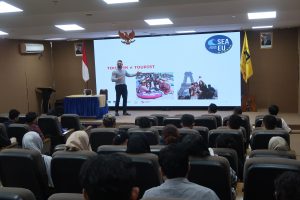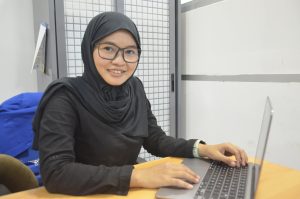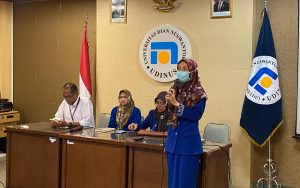Determined to give an aesthetic touch to the urban forest of Krobokan in West Semarang, Universitas Dian Nuswantoro (Udinus) provided assistance in the form of paving blocks made of plastic waste.
That was the continuation of the partnership between Udinus and the Local Community Empowerment Institution (LCEI) of Krobokan, West Semarang. The paving blocks were an eco-friendly innovation invented by the Faculty of Engineering at Udinus, and currently, this innovation has been routinely produced. Moreover, this product has massively been used in various residential areas in Semarang for its powerful materials.
Dr. Rindra Yusianto S.Kom. M.T., the Head of the Student Affairs Bureau at Udinus, said that this assistance served as a first step for Udinus to take part in fixing urban forests within Semarang. In the first phase, Udinus sent a total of 1.100 paving blocks.
“We would like to collaborate in maintaining the beauty of our urban forests, particularly in Kerobokan, West Semarang. Our paving blocks are made of plastic wastes mainly produced by households, and the quality is beyond amazing,” he explained.
The paving blocks were symbolically handed by Dr. Rindra Yusianto S.Kom., M.T., to Wardoyo, the Head of the Local Community Empowerment Institution (LCEI) of Krobokan. Furthermore, the Student Affairs Bureau and the locals collectively agreed to install those paving blocks within the urban forest.
During his interview, Wardoyo expressed his gratitude to Udinus for giving them the paving blocks. He and his team would educate the locals that plastic wastes could be utilized as raw materials to produce paving blocks. According to him, this innovation was a major breakthrough that may benefit the general public.
“Upon seeing this innovation, we would be committed to gathering plastic waste within Krobokan. Those wastes would later be donated to Udinus so that the paving blocks could be massively produced,” Wardoyo concluded.
Last year, these paving blocks made of plastic waste were nominated as the top three innovations in Indonesia. Moreover, this innovation was initiated by a faculty member in the Department of Electrical Engineering, Dr. Ir. Dian Retno Sawitri MT., and it was also successfully funded in the Kedaireka Matching Fund Program. (Humas Udinus/Alex. Foto: Humas Udinus)







